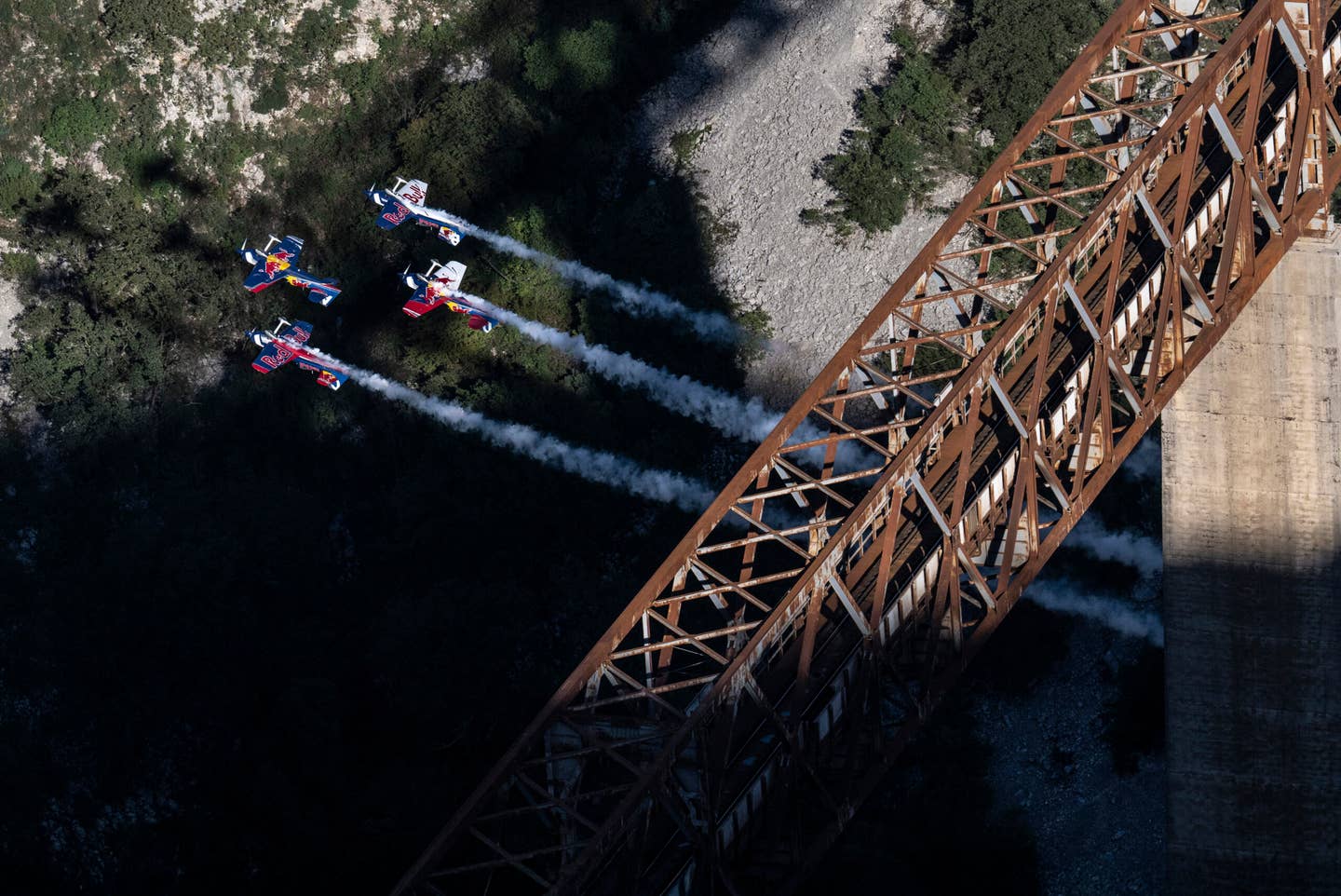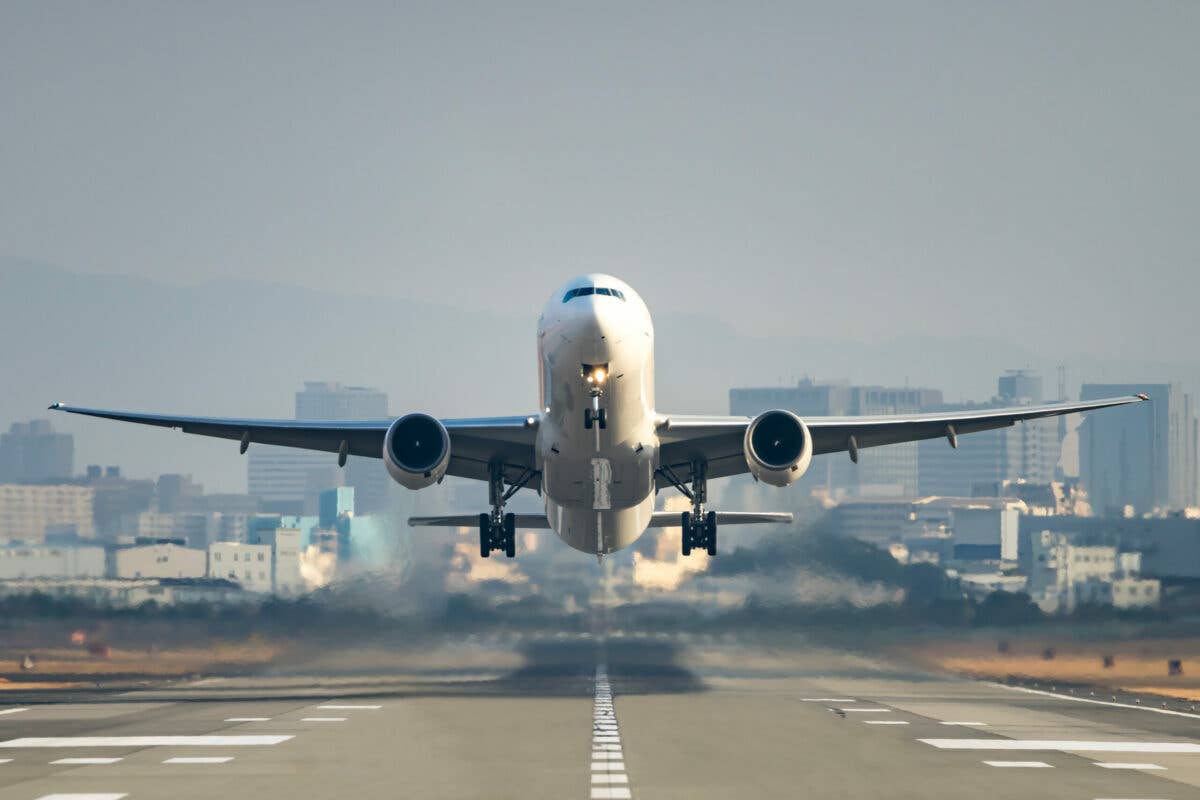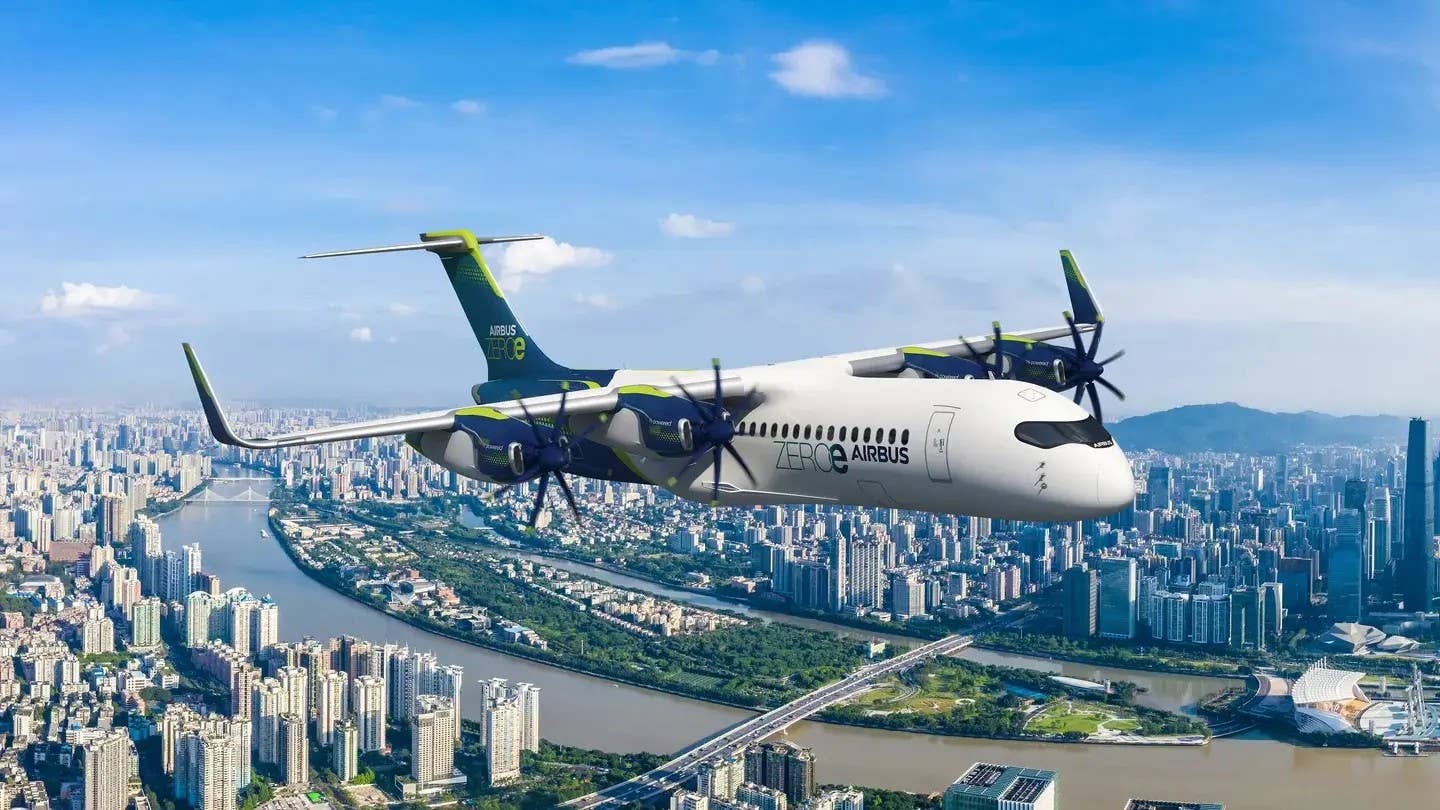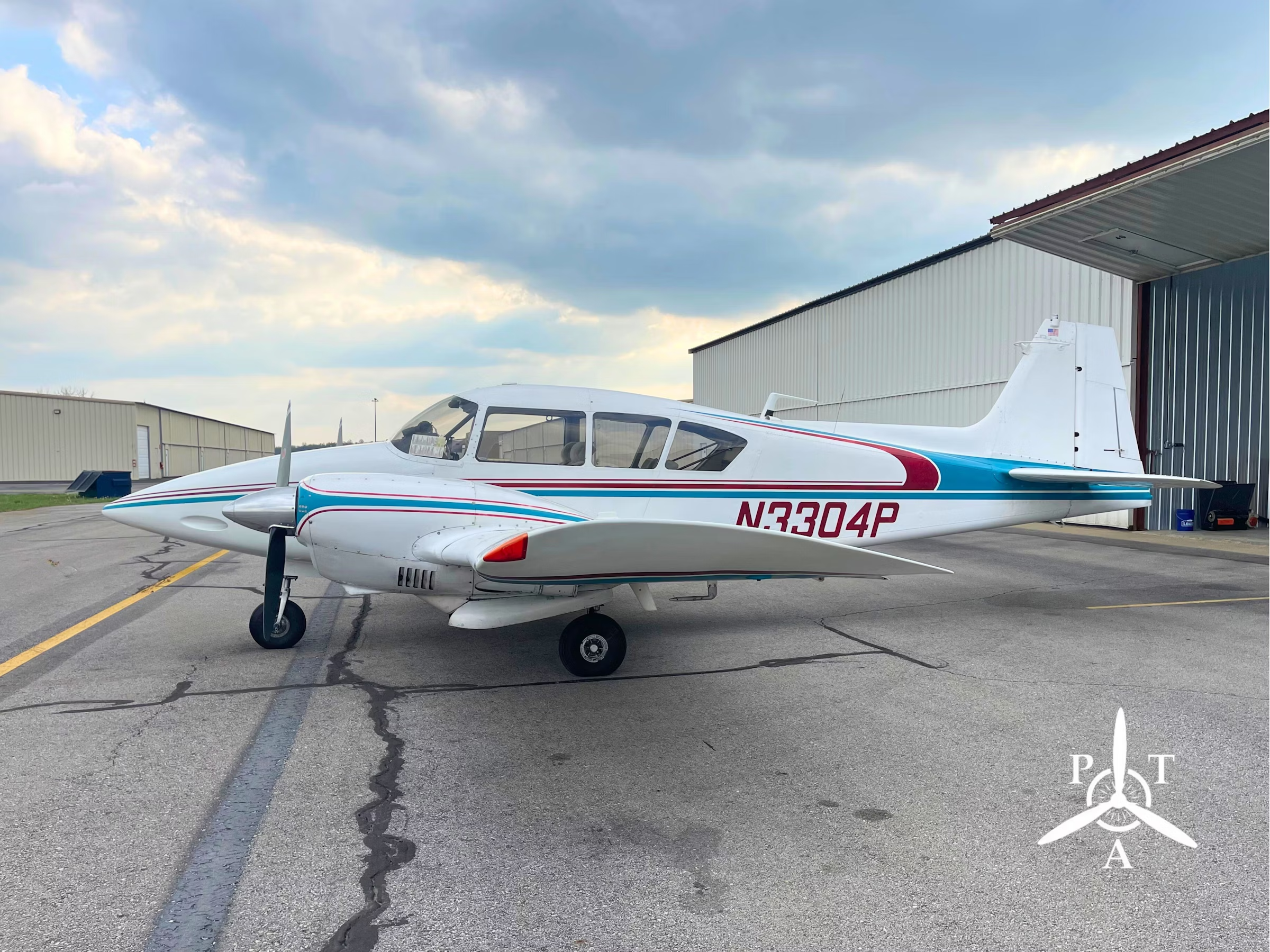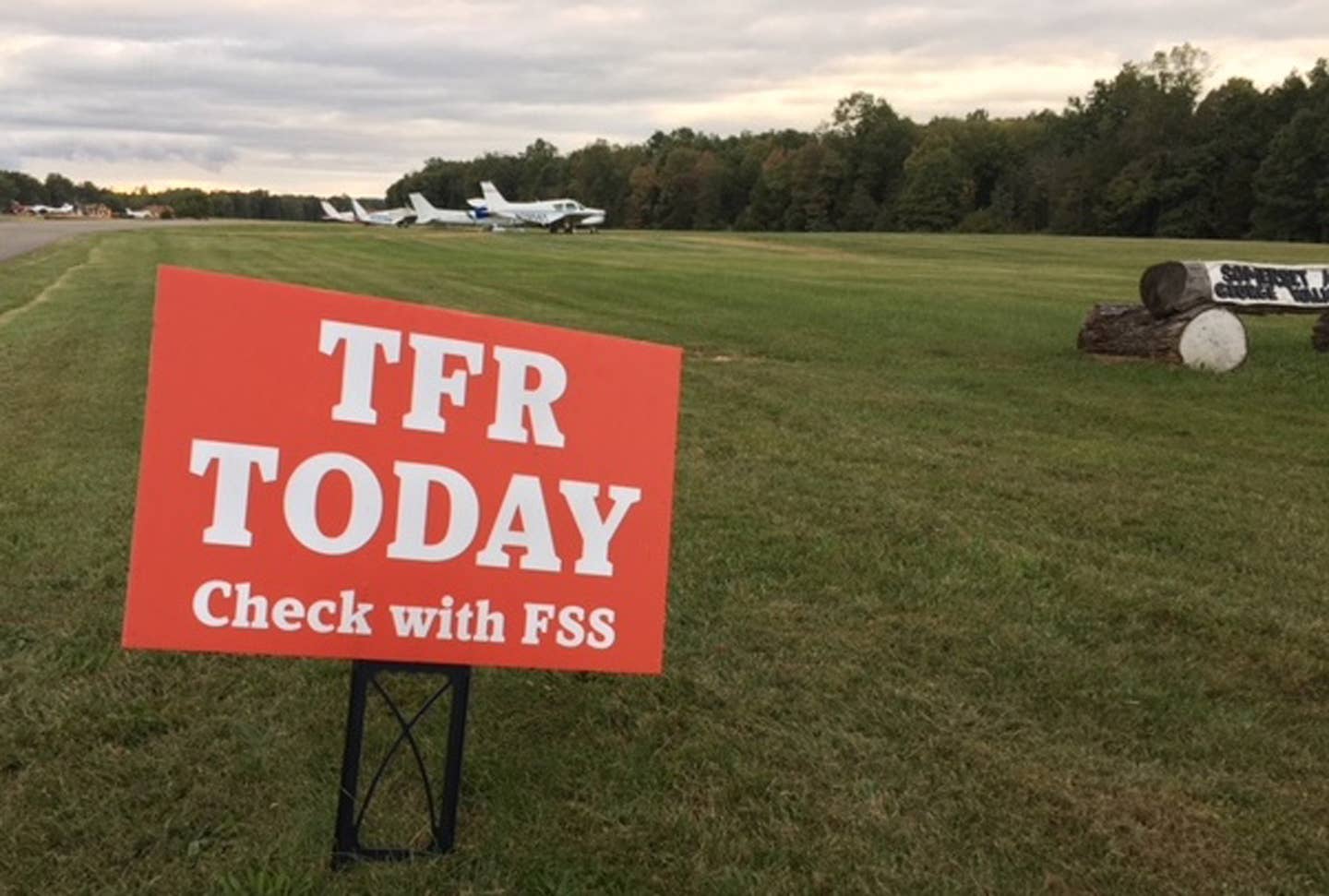
With VIP TFRs occurring frequently at the Somerset Airport, signs are placed at the airport to alert pilots that they must remain grounded. Courtesy Somerset Airport
If you live in a sizable American city, you have likely experienced the frustration of presidential temporary flight restrictions. While there are some variations, presidential TFRs generally limit operations within a 30-nautical-mile circle, where the inner 10 miles often prevents all general aviation operations. For a day or two, you can’t take your airplane out for a flight because the president is in town for an event—generally a meeting, fundraiser or rally. While these occurrences are frustrating, they typically only last for a day or two.
Imagine the frustration for pilots and operators who live near the Trump National Golf Club in Bedminster, New Jersey; and the Mar-a-Lago Club in Palm Beach, Florida, where President Trump visits regularly. As a result, general aviation operators in those areas are often prevented from flying and businesses have suffered great losses.
One such business is the Somerset Air Service at the Somerset Airport in Bedminster, New Jersey—a privately owned, full-service airport that has been in operation since 1946. For the past four years, Steven E. Parker, owner/operator of Somerset Airport, along with other operators in the area, have worked to mitigate the effects of the VIP TFRs that have plagued his business. “When President Trump was elected, it became obvious he would spend significant amounts of time at Mar-a-Lago in Florida and his Bedminster New Jersey Golf Club. Mid Atlantic Aviation Coalition (MAAC) and the New Jersey Aviation Association (NJAA) promoted the idea of using the existing rules governing the three Maryland airports near Washington, D.C., shut down initially after 9/11,” Parker said in a letter to Flying. This is called the Maryland Three Program, and it allows pilots to fly—after being screened and issued a personal identification number—to, from and between College Park Airport, Potomac Airfield and Washington Executive Airport/Hyde Field, which are located inside the Washington, D.C. Special Flight Rules area and the Flight Restricted Zone. “This program has been successful for nearly 20 years and the background check process has promoted aviation and ensured security around our nation’s capital,” said Parker.
Congress responded to the request from the MAAC and NJAA by including a provision in the 2018 FAA Reauthorization Act that required the FAA to study the issue and publish the results by October 1, 2019. Nearly 11 months past that due date, no study has been published and GA operators in the area continue to be crippled by frequent VIP TFRs.
“To be fair, Congress did allocate some money to compensate airports for their lost revenue during the Trump administration, but it didn’t nearly cover the losses in fuel sales and aircraft/businesses that moved away from these airports over the past four years,” Parker said. “A better plan is to allow safe operations rather than a bailout from the taxpayers.”
Parker isn’t just seeking a solution for his own current problem, but a program that can work for future administrations as well. “The time for action is now,” he said. “The FAA needs to publish their report, and Congress needs to act and solve this problem for the flying public in a manner that provides safety and security for our leaders. The roadmap is in place, it is proven to work. I urge they implement the ‘Maryland Three Rules’ for all future presidents.”
If you wish to contribute your voice to this issue, you can sign a petition on the Somerset Airport website by clicking here.

Sign-up for newsletters & special offers!
Get the latest FLYING stories & special offers delivered directly to your inbox

